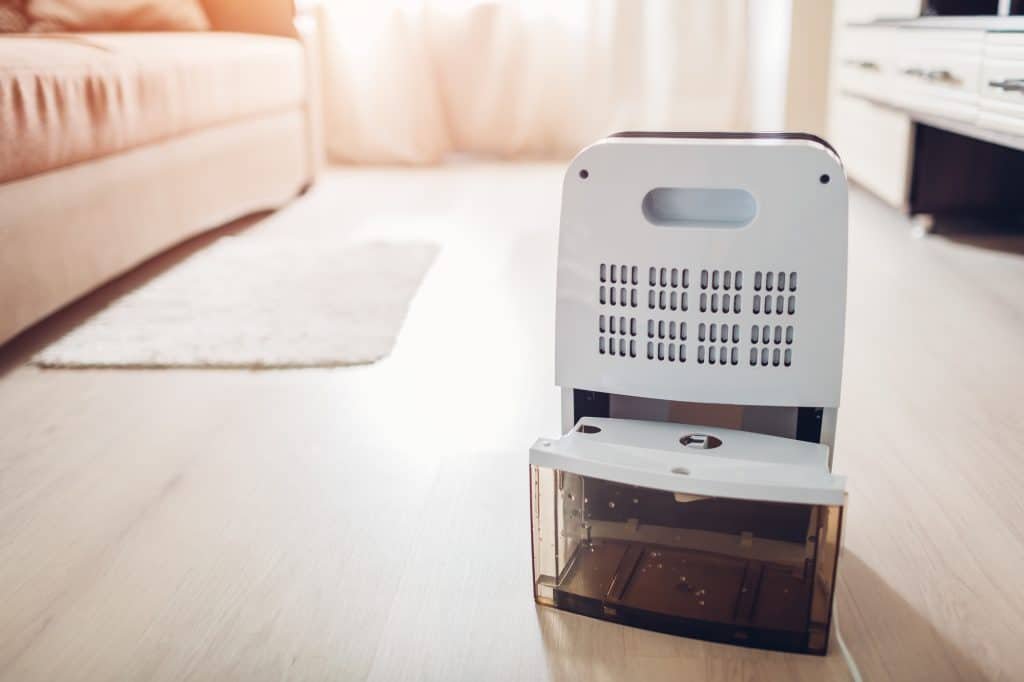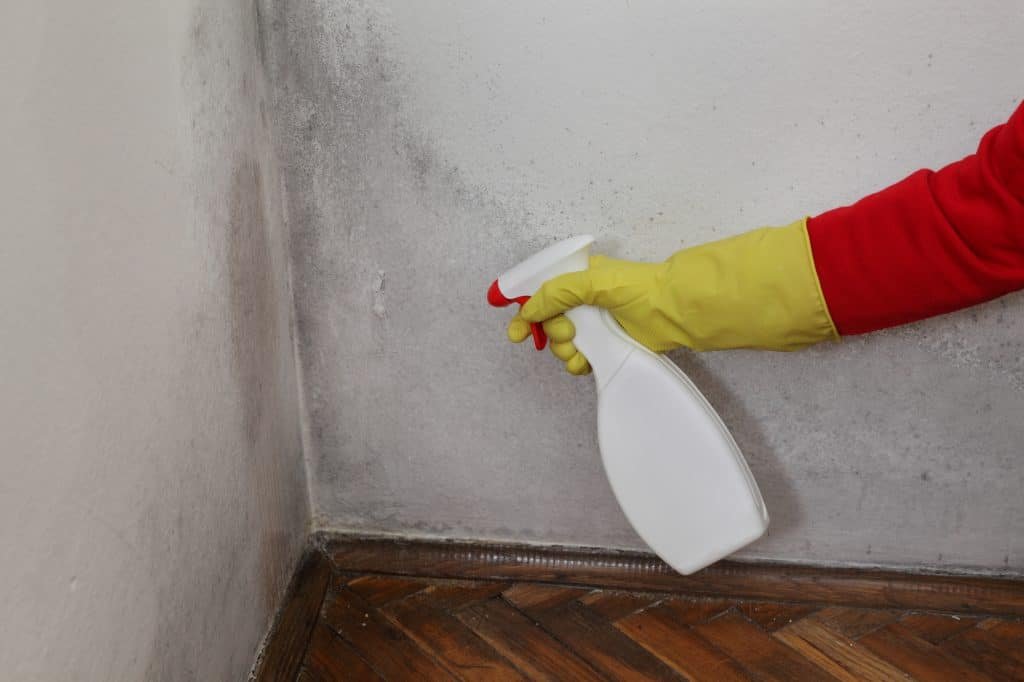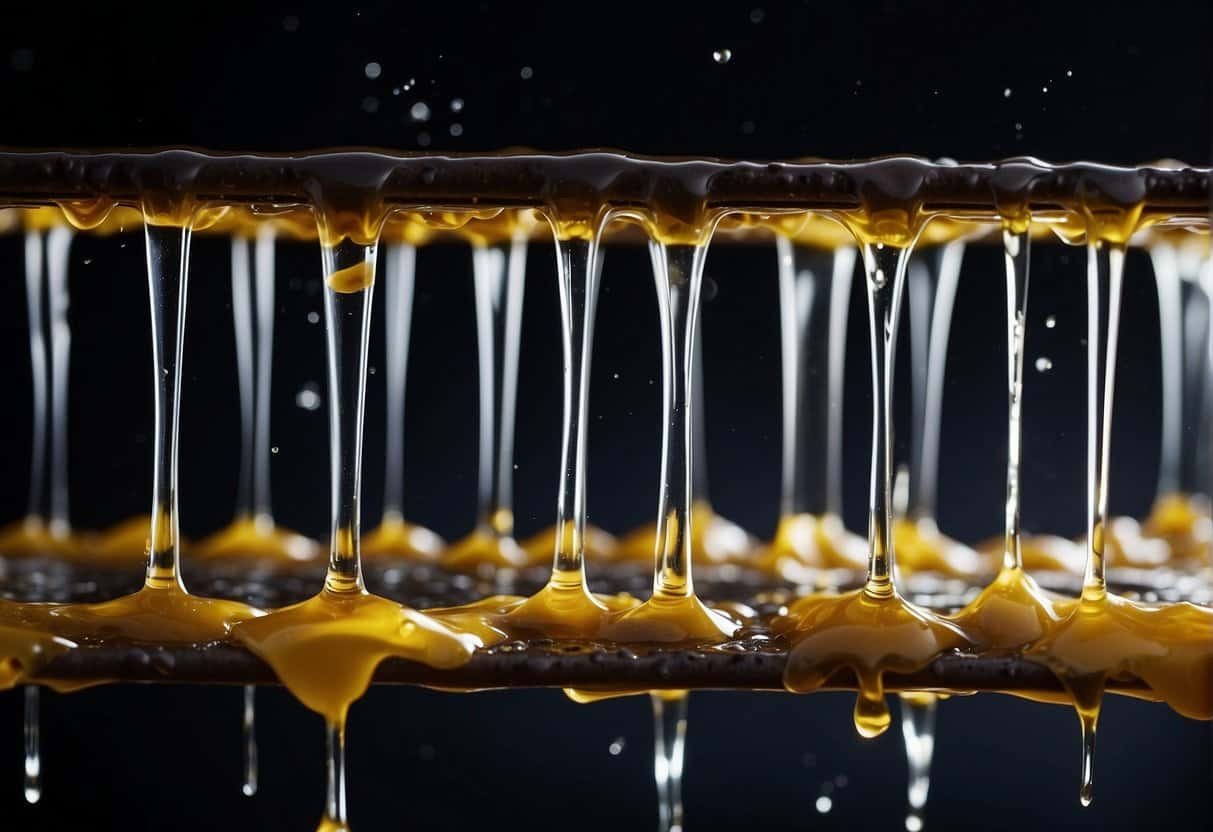
Table of Contents
Basements are often synonymous with odd smells, but unpleasant odors after rain may mean something else is going on. If you’re worried about smells coming from your basement after it rains, what causes them?
If your basement smells after rain, it could be a musty or sewage-type odor. These are caused by moisture entering the basement and plumbing issues, respectively. They can be relatively minor problems that are easy to fix or signify something serious.
In this article, I’ll share details on what causes these two types of smells. I’ll also talk about how to treat them after rain and how long to expect them to last. Finally, I’ll share preventative treatments for each of these issues to avoid them in your basement in the future.
What Causes a Musty or Mildew Smell in a Basement After Rain?
A musty or mildew smell in a basement after rain can indicate mold or mildew growth caused by damp and dark conditions. Mold and mildew can accumulate after as little as 24 hours, and the spores can multiply rapidly.
This odor type is a surprisingly common complaint, but it can be difficult pinpointing the affected area in your basement. Sometimes, the source is obvious from common indicators of water leaks on walls and floors, but other times, you don’t see those outward signs of damp conditions. (Source: BobVila.com)
It’s essential to remove the conditions that allowed the spores to grow while also pinpointing the source to fix the underlying problem. You can start by checking where you believe the damp might be entering the basement after it rains.

Check the basement’s corners, around window frames, pipes, and even on the floor to see if you can spot the source of the moisture.
What Causes a Sewage, Rotten Egg, or Poop Smell in Your Basement After Rain?
A sewage, rotten egg, or poop smell in your basement after rain can be due to smelly air wafting up from a septic system. A dried-out wax seal or faulty barrier in the sewer trap can also cause it. Damaged pipes or a poorly-timed drain clog can also cause the odor.
According to Reader’s Digest, this type of smell isn’t one you should ignore. (source: Reader’s Digest.com) If left unchecked, it can permeate your house under the right conditions.
If your home is on a septic system, the heavy pressure associated with rain can impact how air flows to and from your drains, causing the smell to waft up into the basement. Additionally, the seal around drains could be dry, allowing a sewage smell to escape.
Another cause is a dried-out wax seal or water barrier in the sewer trap, permitting the unpleasant smells to escape. The sewage smell can sometimes be caused by damaged pipes or a poorly-timed drain clog. If you smell the sewage odor frequently when it rains, it’s safe to assume it isn’t a clogged drain.
All of these issues are impacted by water and pressure. While unpleasant, none of these are catastrophic.
How To Treat a Bad-Smelling Basement After Rainfall
It is surprisingly common for people to accept that their basement smells unpleasant and assume there’s nothing they can do to fix it. Thankfully, this is untrue because various simple and inexpensive fixes can address nasty basement smells after rain:
How to Remove a Musty or Mildew Smell from a Basement
Removing the damp conditions as soon as possible is essential if your basement is musty after rain. The quicker you dry the basement out, the quicker you stop mold and mildew spores from producing and spreading.

You can decrease the humidity and dampness in your basement by using a dehumidifier. Run it continuously, dumping the water as soon as the reservoir is full.
Carefully inspect all areas of your basement to see if you can determine the source of the dampness. Inspect all walls, corners, seals, pipes, and floor sections. If areas are covered with drywall or flooring, touch them with your bare hands or feet to see if you can locate the damp section.
If you live in an area that is naturally humid, it is best to leave a dehumidifier set to turn on once the air reaches a specific humidity level. Be sure you check the reservoir regularly and empty it daily when it is in use to prevent the growth of mold or mildew in the water.
How to Remove a Sewage, Rotten Egg, or Poop Smell from a Basement
If your basement smells like sewage, rotten eggs, or poop after rain, remove as much excess humidity as possible by using a dehumidifier.
Walk around the basement to check if your nose will lead you to the source of the issue. You can also gently touch places along walls, window sills, and any other locations where you suspect water may be entering your basement.
Letting your nose locate the source is not a pleasant task, but it’s important as it will help you narrow down the smell’s potential cause. Note areas where the odor is more concentrated so you can relay this information to a professional later if necessary.
Whether you’ve narrowed down the source of the sewer smell, it’s best to have a professional inspect your basement, sewer system, and pipes to ensure you don’t have a serious problem. This is well worth the cost because it can help stop the problem before it becomes more serious and costly.
It’s more likely that it’s a minor issue caused by a dried-out water barrier or air pressure impacting moisture airflow, but it’s good to be certain either way. If the issue is a dried-out water barrier or incorrect air pressure, the technician should be able to rectify it quickly, and the unpleasant smell of sewage should soon be a thing of the past.
How To Prevent Your Basement Smelling During Future Rainfall
The best way to prevent future basement mildew or mold smells during rainfall is to keep the space dehumidified. Set up a dehumidifier to run continuously and, if possible, plumb it to run the captured water to a drain. (Source: ThisOldHouse.com)

Areas of high humidity may be prone to mildew smells even when you take action to keep indoor humidity levels low. A diluted vinegar spray can help keep tanks, hoses, drains, and other water sources free of mold or mildew.
In the case of basement sewer smells after rainfall, you can proactively inspect drains and any fixtures in your basement that aren’t used regularly, such as toilets, sinks, and showers. Run some water through regularly to keep the traps wet and prevent the sewer smells from rising.
You can also add a small amount of vinegar to drains and toilets to help neutralize foul odors. Running a dehumidifier to keep dampness at bay can also reduce sewer smells.
With sewer smells, it’s best to have a professional inspect your basement system to determine if a significant issue needs to be addressed. A licensed plumber can narrow down a cause and provide solutions and alternatives to various household issues.
With any type of basement smell after rain, don’t assume there’s nothing you can do about it. Dry the air out as quickly as possible and do your best to pinpoint the source of the smell so you can address the underlying issue.










